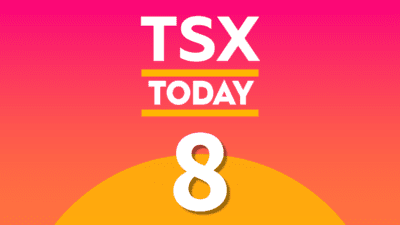Both Loblaw Companies Ltd. (TSX:L) and Metro, Inc. (TSX:MRU) offer compelling cases for investors. Both offer sizable networks of locations and healthy mixes of growth prospects to leave any investor satisfied.
Answering the question of which of the two is the better investment, however, requires a deeper look at each.
The case for Loblaw
Loblaw is the larger of the two grocers, with an impressive network of over 2,000 stores and nearly two dozen different brands.
Loblaw’s entry into the pharmacy sector through the acquisition of Shoppers Drug Mart several years ago provides yet another compelling reason for investment. Shoppers and Loblaw locations have significant overlap, but this hasn’t stopped the company from seizing a unique opportunity.
That deal allowed Loblaw to cross-merchandise its wildly popular President’s Choice store brand across Shoppers stores, creating a hybrid market for those shoppers that prefer stopping at a small store for a few items on the way home rather than heading to a much larger Loblaw location.
In the most recent quarter, Loblaw reported weaker-than-expected results. Profit attributed to common shareholders came in at $19 million for the quarter, down from the $201 million reported in the same quarter last year.
That drop came about from the fallout of the now infamous bread-pricing scandal. Loblaw took a $189 million charge in the recent quarter, attributed to the cost of the gift cards the retailer provided to make good with customers. Additionally, Loblaw also took on a charge related to the merging both the President’s Choice and Optimum loyalty brands under a new single PC Optimum brand.
Critics of Loblaw have stated their frustration with the company over the bread-pricing affair as well as the impact of the higher minimum wage will have in the upcoming quarters on Loblaw’s profitability, but these are not isolated incidents specific for Loblaw, which still has the potential for long-term growth.
Loblaw offers investors a quarterly dividend which provides a 1.65% yield, but growth, not income, should be the main reason that investors should consider with Loblaw.
The case for Metro
Metro is the smaller of the two grocers, but that in no way implies the company has any less of an opportunity for investors.
Metro announced the acquisition of Jean Coutu Group PJC Inc. late last year. Jean Coutu is a Quebec-based pharmacy that will provide Metro the growth that the company needs to expand to the next level and enter the growing and lucrative pharmacy market.
Metro is also making strides in the adoption of a viable mobile commerce revenue stream. In recent years, mobile-based commerce has taken the entire retail sector by surprise, leaving countless legacy retailers struggling to adapt to the new norm.
Grocers like Metro have so far avoided that onslaught, owing to the perishable and delicate nature of buying groceries and having them delivered, which is a different process from ordering anything else online. So far, there is just a 1% penetration into the mobile market by grocery retailers, which leaves a lot of opportunity over the long term.
Metro has two separate solutions in play to cater to that growing segment. First, Metro began offering a delivery service to customers in select areas last year and aims to continue expanding that service to more locations across Metro’s 600-store network in Ontario and Quebec. The company is also looking more into augmenting that service with its meal-kit acquisition, MissFresh.
Metro offers a quarterly dividend with a yield of 1.74%.
Which is the better investment?
Both grocers offer a compelling case for investment, but at this point, Metro is the better option. Between the Coutu acquisition and the opportunity it represents, as well as the ongoing efforts to cater to the growing mobile segment, Metro is stacked with plenty of growth options that should continue to provide growth and value to investors.








